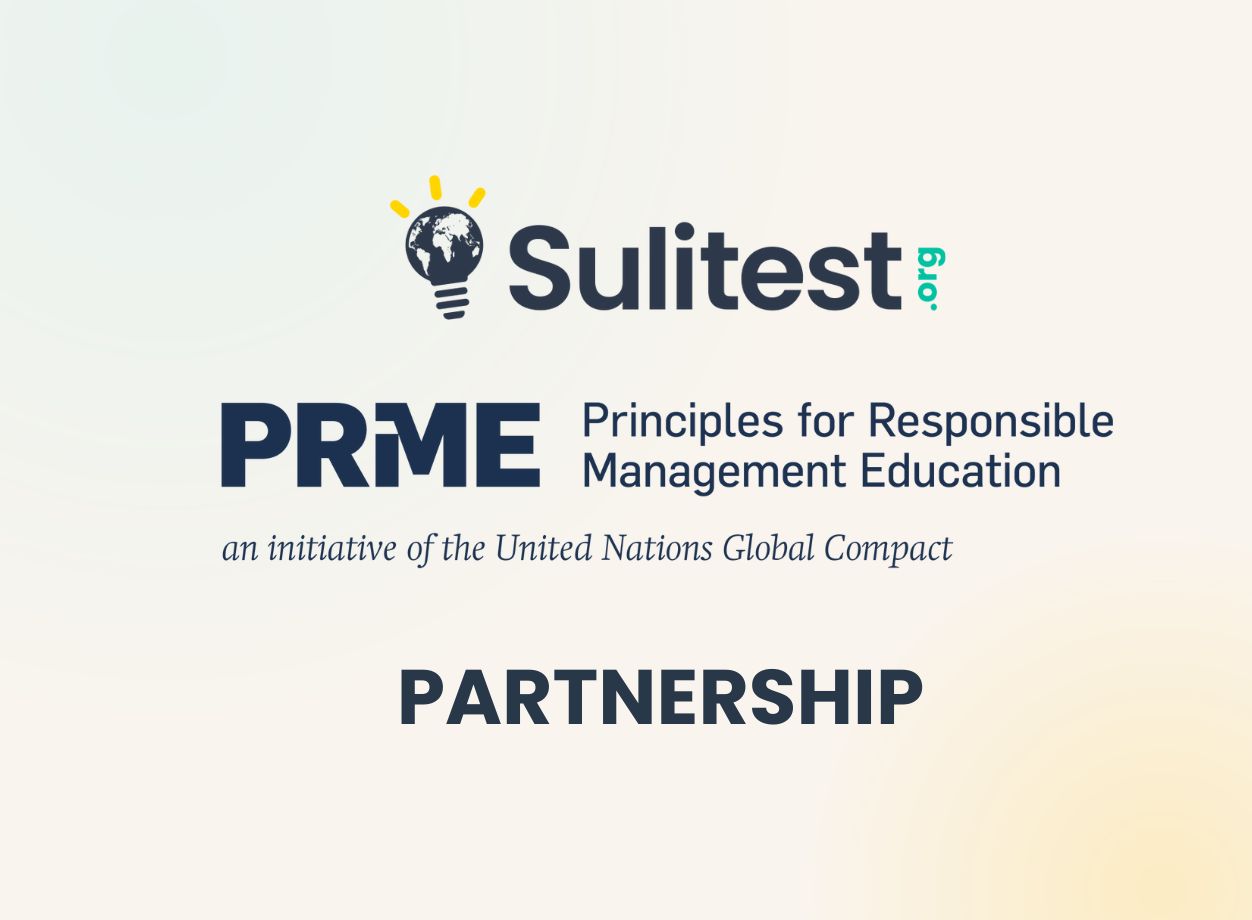
How did we develop our sustainability knowledge assessment (TASK™)?
.png)
On March 1st, Sulitest will launch TASK™ – The Assessment of Sustainability Knowledge – with the ambition to transform education by (re)setting the standard of sustainability knowledge.
In a nutshell, TASK™ is a robust, science-based assessment delivering an international certificate on sustainability knowledge.
Why is an assessment of sustainability knowledge needed?
To build a sustainable future, it is critical that we improve the level of sustainability knowledge, skills, and mindsets worldwide. While society needs experts who can solve specific problems in their field, we need to mainstream sustainability literacy, to ensure that everyone has a sufficient understanding it and can integrate it into their personal and professional practices and decisions.
That leads us to the question: when students graduate, do they go into the workforce having acquired said knowledge? To take it a step further, what was their knowledge level as they joined the university, and how much has it progressed?
Universities across the world are committing to teaching more about sustainability, and they need insights and metrics to steer their strategy, ensure progress and fulfill the vision of a world where every graduate is a sustainability change agent.
To this end, we developed TASK, to provide relevant and comparable metrics for monitoring and steering education for sustainability across any educational program.
Developing the assessment
The development of TASK™ went through the following stages:
- Defining what we mean by sustainability knowledge
- Creation of a question bank
- A Pilot: sampling and in-depth data analysis for internal consistency, robustness and validity
This blog will focus on the first, foundational phase; defining our model for sustainability knowledge.
Sustainability Knowledge - what are we talking about?
We hear about sustainability all the time, from coffee shop chats to UN meetings like COP15. In short, it is central to every agenda these days. However, sustainability is a relatively contested concept. Its definitions encompass diverse, and sometimes conflicting approaches.
To reach our definition of sustainability knowledge, one that would inform what the assessment covers, we engaged with relevant scientific literature and existing frameworks for sustainability, with the help of numerous contributors.
We assembled a Task Force of academics and sustainability professionals, who contributed massively with their research and experience. Moreover, we brought together a committee of diverse stakeholders, the “Fellows”, formed by members of student networks, academic networks, corporate networks, NGOs, public institutions and universities, so we could be in tune with their views. This enabled us make choices that positioned our tools and actions within the field of sustainability, and education for sustainability, leading us to our own model of sustainability knowledge.
We consider it a bold vision, which builds upon the embeddedness of Earth systems, human welfare and all Levers of Opportunity. By basing our ideology on the necessity to know and understand each dimension, as well as their systemic interlinkages, this model is a call for radical systemic change to unite everyone around building a sustainable future.
What were our main sources of inspiration?
Our model builds on three main sources of inspiration.
- The UN 2030 Agenda for Sustainable Development:
The 17 SDGs are now a well-known framework, so it was important for us to be aligned with discourses people already use.

- Embedded conceptualization of sustainability that fits within the planetary boundaries.
This approach builds on the framework developed by the Stockholm Resilience Institute, identifying the nine planetary boundaries that regulate the stability and resilience of the Earth system.
It is of the school of thought that the role of humanity, society, and economy, should be embedded within the Earth’s systems and its physical boundaries.
In the embedded conceptualization of sustainability, the SDGs can be viewed as a “wedding cake” whereby the Economy is embedded in Society, which is, itself, embedded in the Biosphere.

- The third main source of inspiration is Kate Raworth’s (2017) “Doughnut Economics”.
The Doughnut model builds on the planetary boundaries framework and consists of two concentric rings:
- a social foundation, to ensure that no one is left lacking life’s essentials.
- an ecological ceiling, to ensure that humanity does not collectively overshoot the planetary boundaries that protect Earth's life-supporting systems.
It allows us to rethink the economy as a system that should fit between these two sets of boundaries, in a middle ground that is both ecologically safe and socially just; a space in which humanity can thrive.
Our model for Sustainability Knowledge >> All individuals should know and understand the planetary boundaries, the social foundations of human welfare, and Levers of Opportunity, which act as levers to affect our ability to build a sustainable future, and the ties between them.
To put this into practice, we have three main themes which are covered in the assessment:
- Earth Systems; topics includes core planetary boundaries and regulating planetary boundaries that provide a safe operating space for humanity;
- Human Welfare; topics relate to the social foundations to ensure safety and basic needs for all, social welfare, and humans flourishing;
- Levers of Opportunity; covers levers such as Governance, Economy & Finance, Science & Technology, Individual & Collective Action.

Conclusion
While curriculum and pedagogical transformation can take multiple forms across diverse contexts, TASK™ will be a game changer in making sustainability a common language for all, regardless of the degree, specialization, profession, or sector.
It is the common knowledge base that will enable an engineer to exchange and build with a manager or a biologist tomorrow. Of course, knowledge is not enough, and sustainability literacy also covers skills, mindsets, and behaviors to enable action.
However, we know that sharing a common knowledge base is crucial to enable transformative actions and to trigger systemic change.












